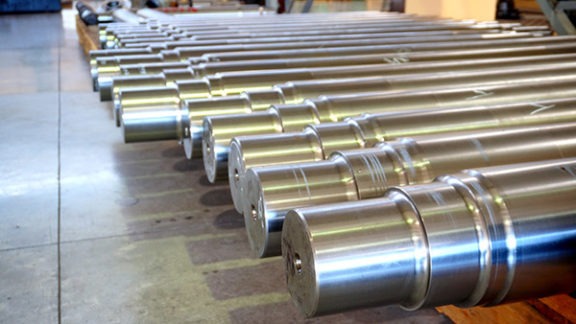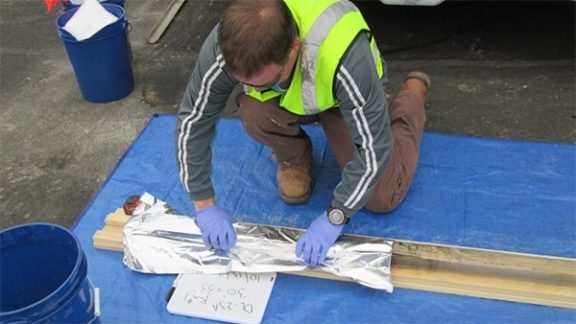In the May 23, 2023, issue of the American Chemical Society’s publication Environmental Science & Technology, Raul Tenorio, a project professional at Haley & Aldrich, co-published the results of a study that examines the role of advanced reduction processes (ARPs) in remediating water contaminants, particularly per- and polyfluoroalkyl substances (PFAS), through the generation of hydrated electrons (eaq−). With growing public, scientific, and legislative attention to PFAS, their long-term presence in water supplies, and their implications for public health, this research seeks to help improve methods for effectively removing contamination from PFAS.
The article, “Influence of carbonate speciation on hydrated electron treatment processes,” notes how the efficacy of ARPs in varying water environments is affected by the presence of other substances that can shield incoming ultraviolet (UV) photons from the photosensitizers used to generate eaq− in ARPs (e.g., sulfite) and also quench eaq−. Raul and his coauthors focus on pH-dependent quenching of hydrated electrons by different dissolved carbonate species and quantify the relative importance of these species compared to other common quenching agents in water sample environments.
In particular, their findings suggest that the dissolved carbonate species H2CO3* (which includes both dissolved aqueous carbon dioxide (CO2(aq)) and carbonic acid (H2CO3)) has a strong quenching effect at moderately alkaline pH conditions, despite being a minor species, and thus could present challenges to ARPs’ effectiveness in treating PFAS in natural waters. Additionally, they determine that previously reported pH-dependent trends for UV/sulfite ARPs (often attributed to eaq− quenching by varying proton (H+) concentrations) may actually be attributed to the acid-base speciation of dissolved carbonate and the sulfite photosensitizer.
Continuing to determine how quickly dissolved carbonates interact with hydrated electrons and which species have the most inhibitory effects on ARPs is essential to developing more effective remediation technologies for persistent water contaminants like PFAS, and this study substantially advances those efforts.
Learn more on the ACS website.




